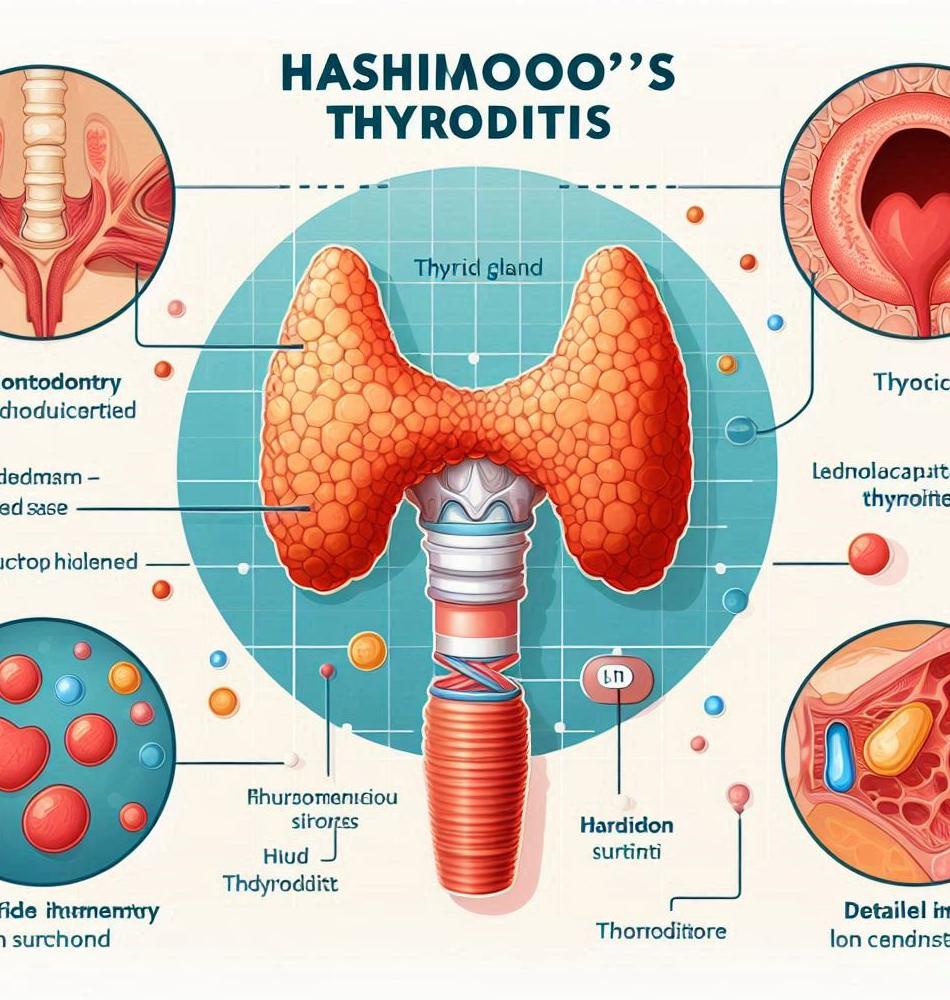Understanding Hashimoto's: How Do You Know If You Have It? ❓
When our bodies become battlegrounds for invisible foes, the effects can ripple through our lives in unpredictable ways. Hashimoto's thyroiditis is one such condition, an autoimmune disorder that turns our immune system against the very gland that regulates so much of our energy and metabolism—the thyroid. Understanding how to identify this condition is not only crucial for health but can also empower you in managing your body better. So, how do you know if you have Hashimoto's?
What is Hashimoto's Thyroiditis? 🌼
Before diving into the signs and symptoms, it’s essential to have a foundational understanding of Hashimoto's. This disease is characterized by inflammation of the thyroid gland, leading to decreased thyroid function or hypothyroidism.
Commonly, it presents later in life, predominantly affecting women. The inflammation causes the thyroid to produce insufficient hormones, making it rampant with consequences that affect everything from energy levels to emotional well-being.
Recognizing the Symptoms 🌟
To effectively recognize Hashimoto's, one must be aware of the myriad symptoms that can arise. These often develop gradually and may vary significantly from person to person. Here are some key indicators:
- Fatigue: Do you experience overwhelming tiredness even after a full night's sleep?
- Weight Changes: Have you noticed unexplained weight gain or difficulty losing weight?
- Cold Intolerance: Do you feel excessively cold compared to others?
- Dry Skin and Hair: Is your skin becoming unusually dry and is your hair thinning?
- Constipation: Are you experiencing frequent bouts of constipation?
Additional Signs to Watch Out For 🔍
Aside from the common symptoms mentioned above, other signs can indicate Hashimoto's:
- Memory and Concentration Issues: Do you struggle with brain fog or forgetfulness?
- Joint Pain: Are you dealing with unexplained aches and discomfort in your joints?
- Menstrual Irregularities: Are your menstrual cycles becoming erratic or heavier than usual?
- Thyroid Nodules: Have you observed any swelling or lumps in the neck area?
How is Hashimoto's Diagnosed? 🏥
If you suspect you might have Hashimoto's, consulting a healthcare professional is a crucial step. Diagnosis typically hinges on a series of evaluations, including:
Blood Tests 📊
Doctors will typically order blood tests to assess thyroid function and immune system activity. Key tests include:
- TSH (Thyroid Stimulating Hormone): Elevated levels can indicate hypothyroidism.
- Free T4: A measure of thyroid hormone levels in the blood.
- Antibody Tests: The presence of thyroid peroxidase antibodies (TPOAb) is indicative of Hashimoto's.
Imaging Tests 🩻
In certain instances, imaging tests might be necessary to visualize the thyroid gland. These tests may include:
- Ultrasound: To check for inflammation or nodules in the thyroid.
- CT Scan or MRI: In rare cases, when further investigation is needed.
Frequently Asked Questions About Hashimoto's 💭
- Can men get Hashimoto's? Yes, while it primarily affects women, men can also be diagnosed with it.
- What are the long-term effects of Hashimoto's? If left untreated, it can lead to complications such as heart problems and mental health issues.
- How is Hashimoto’s treated? Treatment often involves hormone replacement therapy, typically with levothyroxine.
- Can lifestyle changes help manage symptoms? Yes, a balanced diet, regular exercise, and stress management can support overall health.
Managing Hashimoto's Thyroiditis 💪
Once diagnosed, Hashimoto's can be managed effectively through proper interventions and lifestyle adjustments. Diet, medication, and alternative therapies play significant roles in managing this condition.
Dietary Changes 🥗
Food can either support thyroid health or make symptoms worse. Here are a few suggestions:
- Incorporate Whole Foods: Focus on fresh fruits, vegetables, lean proteins, and healthy fats.
- Avoid Processed Foods: Stay away from refined sugars and processed ingredients.
- Consider Gluten-free Options: Some individuals may benefit from a gluten-free diet.
Medication 💊
The cornerstone of managing Hashimoto's often lies in medication:
- Levothyroxine: A synthetic hormone that can restore adequate hormone levels.
- Regular Monitoring: Regular blood tests to ensure proper hormone regulation.
Alternative Therapies 🧘♀️
In addition to conventional treatment, some patients explore alternative therapies:
- Acupuncture: May help alleviate some symptoms.
- Yoga and Meditation: Useful for stress reduction.
Emotional and Mental Support ❤️
Living with an autoimmune disorder can take an emotional toll. Support groups, counseling, and mindfulness practices can provide the necessary emotional respite, making the journey seem less isolating.
Conclusion 🌈
Recognizing Hashimoto's thyroiditis at the onset can be empowering. By understanding the signs, seeking timely medical advice, and embracing a holistic approach to health, individuals can lead balanced lives. If you are experiencing symptoms, do not hesitate to consult a healthcare professional to have a thorough evaluation. Remember, knowledge is power, especially when navigating the complexities of autoimmune disorders like Hashimoto's. Stay informed and proactive in your health journey!
.png)





